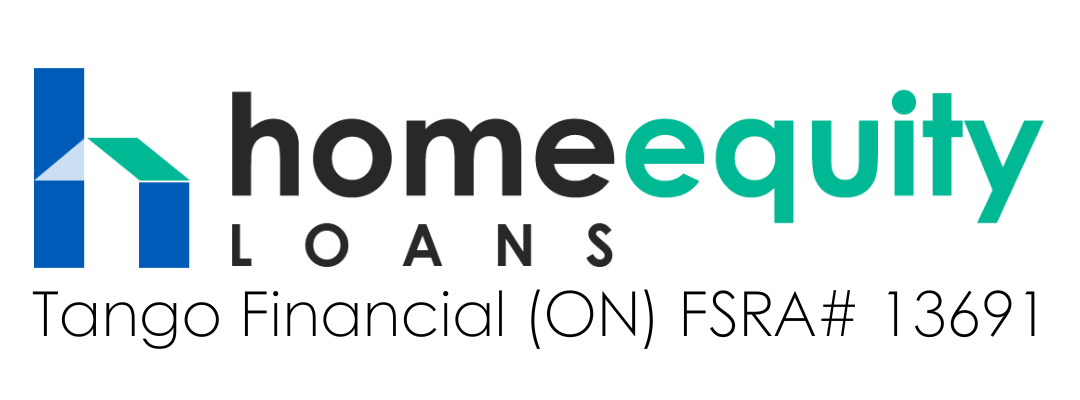Reverse Mortgages for Senior Homeowners
At homeequityloans.ca, we help senior homeowners to navigate the reverse mortgage process with ease, transparency, and confidence.
Understanding Reverse Mortgages
A reverse mortgage is a useful tool for senior homeowners in Canada aged 55 and older. It’s a unique loan designed to empower seniors by turning their home into a source of income. It allows homeowners to access a portion of their home equity without making regular monthly payments. Instead of paying the loan back right away, the loan balance becomes due when the homeowner sells the property, moves out permanently, or passes away.
The biggest advantage is that it lets seniors unlock the value of their homes to meet financial needs while continuing to live in the property they love.
Key Features of a Reverse Mortgage:
No Monthly Payments: Unlike traditional mortgages, no regular payments are required. Interest and fees accrue over time, but the homeowner isn’t obligated to repay the loan until they sell the home.
Retain Homeownership: You maintain ownership of your home and can continue living in it as long as you meet the terms of the loan.
Tax-Free Income: Funds from this loan is typically not considered taxable income, which means they won’t impact benefits such as Old Age Security (OAS) or the Guaranteed Income Supplement (GIS).
How Does a Reverse Mortgage Work?
A reverse mortgage enables you to borrow up to 55% of your home’s current value. The exact amount depends on factors such as:
Your Age: Older homeowners may qualify for a higher loan amount.
Home Value: The more valuable your home, the more equity you can access.
Home Location and Condition: If your property is in high-demand area or in good condition, you may qualify for a larger loan amount.
Once approved, the loan can be received as a lump sum, a line of credit, or in regular monthly payments, allowing for flexibility based on your financial requirements. The loan is repaid when homeowners plan to sell their home, or the borrower is deceased. The repayment amount includes the loan principal, interest, and any associated fees.
To ensure you know all the details, reach out to our mortgage specialist to understand the ins and outs of a reverse mortgage before committing.
Reverse Mortgage Benefits In Canada
A reverse mortgage offers several compelling benefits to those who are unable to stretch their retirement income as far as needed due to rising living and healthcare costs. Here’s how it can help:
Increase Financial Flexibility: By accessing extra cash through equity, senior homeowners can maintain their living cost without selling the home.
Non-Taxable Funds: The amount received through a reverse mortgage is not considered as taxable income, meaning it won’t impact government benefits you are getting from OAS or GIS.
Non-Repayment Terms: Since homeowners are not required to pay back the loan amount unless they move out, sell the home or pass away, this provides a huge relief for those on fixed income.

Types of Reverse Mortgages in Canada
In Canada, there are two prominent options that stand out: the CHIP Reverse Mortgage and Equitable Bank’s Reverse Mortgage Product. Each of these loan products offers unique features and benefits tailored to senior homeowners who are seeking to access equity. Here’s a closer look at both options:
CHIP Reverse Mortgage
The Canadian Home Income Plan (CHIP) program is tailored for homeowners who are aged 55 and older, who wish to enjoy retirement on their own terms. This program is ideal for those looking to tap into their equity while keeping the home, and want to improve cash flow.
Equitable Bank’s Reverse Mortgage Product
Equitable Bank offers a competitive reverse mortgage product to access home equity. Like CHIP, Equitable Bank’s reverse mortgage is designed for seniors to unlock cash from their homes through equity. However, this product focuses on providing personalized service and solutions to meet the unique needs of each borrower.
Both the CHIP Reverse Mortgage and Equitable Bank’s Reverse Mortgage Product are valuable options for senior homeowners in Canada. However, choosing the right product depends on individual’s financial needs, property value, and personal circumstances.
It’s essential to weigh the features, benefits, and potential implications of each option. For personalized assistance and to explore your options further, reach out to a mortgage specialist or visit homeequityloans.ca for additional resources and guidance.
Where to Get a Reverse Mortgage in Canada
In Canada, several financial institutions and lenders offer reverse mortgages. Finding a right one can be a complex and daunting task, especially for senior homeowners. This is where mortgage brokers, such as homeequityloans.ca, come in to provide invaluable assistance.
We connect you with multiple reverse mortgage lenders, making sure you have a variety to choose from. This increases your chances of finding the most competitive rates and favorable terms.
- We compare different products side by side
- Assess your individual circumstances
- Help in gathering required documentation
- Negotiate with lenders for better terms
- Offers ongoing support and information
- Help in understanding the fine print and obligations
How to Apply for a Reverse Mortgage
Applying for a reverse mortgage can be straightforward when working with the right partner. homeequityloans.ca specializes in navigating the reverse mortgage process, ensuring that you understand all available options and choose the best solution based on their needs.
Step-by-Step Guide to Getting a Reverse Mortgage:
Consultation: Reach out to our team for a personalized consultation. We’ll assess your home equity and financial goals to determine the best product for you.
Application: Once you’ve selected the right option, our team will guide you through the application process on gathering all necessary documents.
Appraisal: Your home will be appraised to determine its current market value, which will influence how much you can borrow.
Approval and Disbursement: After approval, you can choose how you’d like to receive the funds – either as a lump sum amount, line of credit, or regular monthly payments.
Tips for Considering a Reverse Mortgage
Assess Your Financial Needs to ensure a reverse mortgage is the right choice for your financial needs.
Understand the Costs: Including closing costs, interest rates, and any other associated costs.
Consult with Experienced Advisors to get personalized guidance before making any decision.
Evaluate Other Financial Options such as downsizing or accessing other forms of credit, to ensure a reverse mortgage is the most suitable option for your situation.
Repaying Your Reverse Mortgage
With a reverse mortgage, you are not required to make regular payments. Although not necessary, some lenders allow you to make optional payments towards the interest and principal during the term of the loan. This can help reduce the overall balance, but there are limits on how much you can pay at one time, depending on your lender’s terms.
You have the flexibility to pay off the entire loan at any time, but early repayment could incur fees. The exact terms, including penalty for early repayment, will vary based on the agreement you have with your lender, so it’s essential to review these details carefully.
The loan must be repaid in the following situations:
- When you sell your home
- If you move out of your home
- Upon the death of the last borrower
- In the event of default on the reverse mortgage
Once any of the above events are triggered, you or your estate will generally have a set period to repay the reverse mortgage. Each lender has its own policies on how long you have to repay the loan, so it’s advisable to discuss this timeline with your lender before taking out the mortgage.
What if You Default on a Reverse Mortgage
Defaulting on a reverse mortgage can have serious consequences, potentially leading to the loss of your home. Even though you don’t require monthly payments, homeowners still have certain obligations that must be met to avoid default. Here’s what you need to know:
- Failure to Pay Property Taxes or Insurance
- Letting Your Home Fall into Disrepair
- Not Using the Home as Your Primary Residence
- Breaching Contract Terms
Explore Your Options with Homeequityloans.ca
At homeequityloans.ca, we understand that every homeowner’s situation is unique. Our experienced team is here to help you explore whether a reverse mortgage is the right solution for you. We’ll guide you through the process, offering clear and compassionate advice every step of the way.
How Much Am I Eligible to Borrow?
Use a Home Equity Loan Calculator
Using our Home Equity Loan Calculator, you can get a quick estimate of how much you can borrow with a reverse mortgage. This tool helps you assess your eligibility and gives you a general idea of the loan amount based on your home’s value and other factors.
Once you’ve gathered your estimate, reach out to our mortgage broker experts for personalized advice. They will guide you further based on your unique situation and assist you through the application process. This will ensure you receive the most precise information on how much you can borrow and the best terms available.
